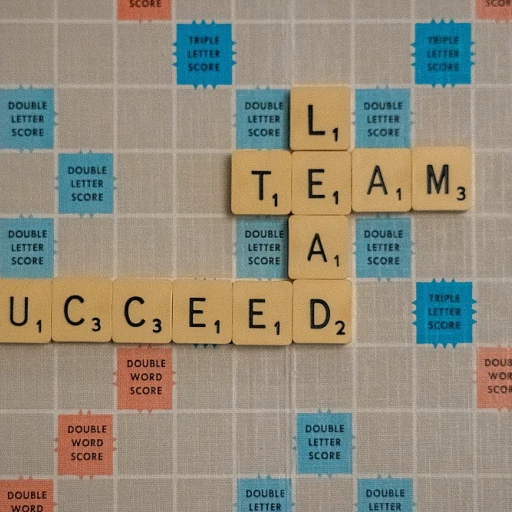
Understanding the Role of a CHRO
A Deep Dive into the Chief Human Resources Officer Role
Understanding the multi-faceted responsibilities of a Chief Human Resources Officer (CHRO) is essential for anyone aspiring to this level. Grasping the intricate balance of management, employee engagement, and strategic development unveils the depth needed to excel in this high-profile role.
The role of a CHRO is pivotal within a company, transcending traditional HR functions to touch on all aspects of organizational growth and team performance management. It’s not just about hiring and firing; it's about cultivating a career framework that aligns with both the company's goals and the employees' career paths.
- Transitioning From Individual Contributor to Leadership: A CHRO often begins their journey as an individual contributor within the HR space. As they move up the career path, they develop into key strategic roles that influence overall company performance.
- Strategic Vision: Moving beyond administrative tasks, a CHRO needs to develop a sophisticated understanding of the business landscape to align HR strategies with company growth and career progression.
- Building a Framework: Establishing a robust framework for career progression is crucial. This involves creating clear job family structures and career levels that provide employees with a roadmap for growth and help employees understand potential career paths within the organization.
For a deeper exploration of what it takes to excel in this role, consider examining unveiling the core skills of a chief human resources officer which delves further into the critical skills and frameworks necessary for success.
Essential Skills for CHRO Success
Mastering Core Competencies for Leadership Excellence
In today’s fast-paced business environments, understanding the role and responsibilities of a Chief Human Resources Officer (CHRO) goes beyond traditional HR functions. It requires a unique blend of skills, developing a robust set of competencies, and an innovative approach to leadership. For those aspiring to elevate their career to the level of a CHRO, mastering a specific skill set is crucial. Here are some essential skills that contribute to CHRO success:- Strategic Thinking: A CHRO must develop a strategic vision that aligns with the company's goals and objectives. This is a core skill that helps in crafting effective frameworks for career and progression planning.
- Leadership and Influence: As the leader of HR, a CHRO guides the development and success of their team. They should possess the ability to influence management decisions and drive change across various career levels.
- Performance Management: Effectively managing employee performance is crucial for company success. A CHRO must implement performance frameworks that help employees achieve their potential while supporting career growth.
- Communication Skills: Excellent communication is vital when working with diverse teams and executives. It ensures clarity in conveying strategies for employee development and career progression.
- Emotional Intelligence: Understanding and managing emotions in the workplace enhances teamwork and employee engagement, which are pivotal for overall job performance.
Navigating Organizational Challenges
Embracing the Challenge of Organizational Change
Transitioning into the role of a Chief Human Resources Officer (CHRO) requires a robust understanding of how to manage and implement organizational change effectively. A CHRO acts as a strategic partner and advisor, addressing complex scenarios that affect the company's future. Successful navigation through these challenges is intricate, demanding a unique set of skills and insights. The role of a CHRO extends beyond traditional human resources tasks. It involves fostering a culture that aligns with the company's mission and strategic goals. In doing so, CHROs must ensure that their development efforts are geared towards employee growth, helping employees at all levels find their career paths within a progression framework that supports career growth.- Aligning with Business Strategies: A CHRO must craft initiatives that align with the overarching business strategy, ensuring that every HR action supports the company's growth and objectives. This alignment facilitates a smoother transition when organizations undergo structural or strategic changes.
- Talent Management and Development: Building a strong HR team involves strategic talent management skills. A CHRO should focus on the development of career frameworks that accommodate diverse career levels, enhancing employee engagement and performance management.
- Facilitating Smooth Transitions: Implementing structured organizational changes without significant disruptions requires effective performance management and clear communication with individual contributors and team leaders. This helps in maintaining productivity and morale during transitions.
- Adaptability and Resilience: Being open to change and possessing the capacity to adapt quickly are key traits. CHROs must be resilient, facing uncertainties head-on and guiding their teams through times of change to achieve desired results.
- Cultural Sensitivity and Inclusivity: Promoting an inclusive workplace culture is essential. It's vital for a CHRO to ensure that every employee feels valued and included in the organizational fabric, fostering a supportive work environment.
Developing a Strategic Vision
Crafting a Vision for Organizational Success
Creating a strategic vision is a critical responsibility for a Chief Human Resources Officer (CHRO). This strategic foresight serves as the framework for driving career growth and development within the company, providing clear career paths and progression frameworks for all levels of employees. As the CHRO, it’s essential to intertwine the vision with the company’s objectives and culture, ensuring alignment across the board. A successful strategic vision will focus on the development and implementation of a progression plan that clearly defines career levels, from individual contributors to management. This framework career approach aids in understanding and boosting employee performance, harmonizing it with overall company goals. To foster career progression, it’s crucial to incorporate:- Clear Career Frameworks: Establish distinct career levels and job families to help employees visualize their potential career paths. This creates transparency and incentivizes growth within one's role.
- Performance Management Systems: Implement robust systems to assess and develop employee skills and capabilities. Regular feedback and constructive criticism are key components.
- Incorporation of Development Opportunities: Integrate training and development programs to enhance skills and future-proof employees' career paths, thereby promoting an engineering career mindset that thrives on growth and learning.
Building a Strong HR Team
Creating a Cohesive and Capable HR Unit
Building a strong HR team is a cornerstone of the Chief Human Resources Officer (CHRO) role, essential for ensuring effective execution of HR strategies across the company. A cohesive HR team facilitates seamless management of employee-related functions and supports career growth at various levels, which is crucial for overall company success. To form a formidable HR team, a CHRO should focus on several key areas:- Recruitment and Onboarding: Identifying the right talent with the necessary skills and aligning them with the organization's culture is vital. The onboarding process should be structured to ensure new employees understand their roles and how they fit within the larger framework of the company.
- Skill Development: Promoting continuous learning and professional development for HR team members is important. It encourages progression within the team and aligns with the company's goals. Encouraging participation in training programs, workshops, and seminars related to HR trends and progression frameworks can boost team performance.
- Role Clarity and Career Paths: Clearly defining job roles and creating distinct career paths within the HR team helps in mapping career progression. This includes setting up progression plans and ensuring alignment with career frameworks that consider varying levels of experience and expertise. This clarity can help employees visualize their career development and progression.
- Performance Management: Implementing robust performance management systems ensures accountability and recognizes high performers. This involves setting measurable goals that align with the company's strategic vision and regularly reviewing employee contributions to adjust roles and responsibilities where necessary.
- Fostering Collaboration: Encouraging a collaborative work environment where individual contributors can thrive is vital for team success. Promoting open communication, regular feedback, and teamwork enhances employee engagement and contributes to an efficient HR department.
Continuous Learning and Adaptation
Fostering Continuous Growth and Adaptation
In an ever-evolving corporate landscape, the role of a Chief Human Resources Officer (CHRO) necessitates continuous learning and adaptation. This flexibility is pivotal for any CHRO aiming to succeed in the upper echelons of their career framework. The ability to stay updated with the latest trends and best practices in HR management is crucial. This not only enhances personal career growth but also empowers the entire team to thrive in an environment that values adaptability. For CHROs, career development is a multifaceted endeavour. It requires a deliberate strategy, integrating systems that support learning and progression. Below are some vital components to consider:- Lifelong Learning: Dedication to ongoing education is paramount in maintaining relevance. This can include workshops, seminars, and other training sessions aimed at sharpening HR skills and knowledge.
- Networking and Collaboration: Engaging with fellow professionals offers new insights and ideas. It also provides opportunities to discuss shared challenges, solutions, and the possible integration of new frameworks.
- Mentorship and Coaching: Either participating as mentors or seeking guidance from industry leaders can widen a CHRO's perspective and inspire innovative thinking.
- Feedback Mechanisms: Implementing strong performance management systems that accommodate regular feedback can aid in both personal development and the enhancement of management strategies.













